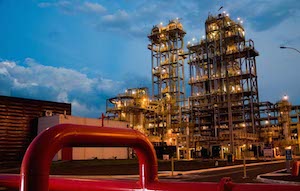Like its peers, Odebrecht, the celebrated Brazilian mega-builder, is facing twofold headwinds of a slowing domestic economy and a murky corruption investigation involving billions of dollars in bribes and kickbacks that contractors allegedly paid to win deals with state-owned oil giant Petrobras.
Related Links:
Petrobras Pay-To-Play Probe Makes Room for Global Firms
Viewpoint: Thoughts on Corruption and Ethics in Brazil
Although Odebrecht officials deny that the company ever participated in the alleged scheme, publicly revealed last year through the Brazil government’s ongoing criminal investigation dubbed “Operation Car Wash” (or “Lava Jato” in Portuguese), the company still faces legal and financial challenges. On June 30, Fitch Ratings downgraded three large construction firms, including Odebrecht S.A., after Marcelo Odebrecht, president, along with four other of the company’s executives, was arrested on June 19 as part of the widening probe.
“The negative outlook is a result of the ongoing nature of the Lava-Jato investigation and the deterioration of the domestic macroeconomic scenario,” said Fitch, adding that it did not expect the probe to hit Odebrecht’s balance sheet for another six months. However, the ratings firm “remains concerned with the reputational damage it may cause in the medium term … in signing new contracts and obtaining funds.”
Working in the international construction firm’s favor is an ongoing mission to diversify its project portfolio across multiple markets and overseas countries. At the end of last year, Odebrecht reported $33.9 billion in global revenue, of which $190 million—or less than 1%—was from works with Petrobras. Roughly two-thirds of its work is now outside Brazil, as well. The company employs some 107,000 workers in 18 countries.
“Even though our zip code is in Brazil, the majority of our business is outside Brazil,” said Adriana Henry Meirelles, Odebrecht’s head of investor relations, during a phone interview with ENR this past April. She said the company’s executive suite expected backlog to shrink by 25% by the end of this year, due to economic slowdowns in Brazil and other parts of the world, but it didn’t expect Operation Car Wash to drag down construction in its home country as much as it has.
“What we are currently seeing is that the willingness of investors to put their money in Brazil has diminished,” Meirelles said.
Last fall, Odebrecht launched an extensive review of its books and policies in an effort to participate in the government’s investigation. “We reviewed over 9 million payments,” Meirelles said. “We didn’t find anything.” Federal prosecutors allege that for years Petrobras contractors were required to inflate bids by 3% to retain work. Petrobras says it lost more than $2 billion because of the kickback scheme.
Brazil’s corruption woes add to an already-growing economic slump in Latin America. The region’s economy has been contracting largely due to falling global commodity prices, with real gross domestic product growth slipping to 1.3% in 2014 from 2.9% in 2013, according to the latest numbers from the International Monetary Fund.
This year, the region’s GDP is expected to grow just 0.9%, or essentially flat, with 2% growth forecasted in 2016. Brazil has been one of the hardest-hit countries in the region, falling to a stagnant 0.1% GDP growth in 2014 from 2.7% in 2013, and it is expected to dip into a negative 1% recession overall this year followed by 1% positive growth next year. In contrast, Mexico grew 2.1% in 2014 and is projected to grow another 3% this year and 3.3% in 2016.
“The next couple of years are going to be challenging, but this will actually improve,” Meirelles said.
Until then, high unemployment and inflation threaten to keep the Brazilian economy sluggish for some time. "Sales of machinery are down anywhere from 30% to 50% over a year ago," says Chuck Yengst, a construction equipment analyst in Wilton, Conn. "The huge downturn is being caused by a major inflation problem, a major unemployment problem and lack of funds."



